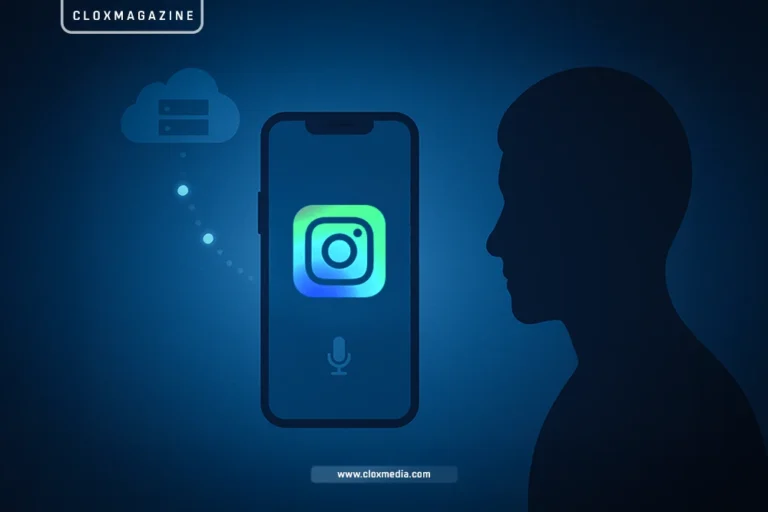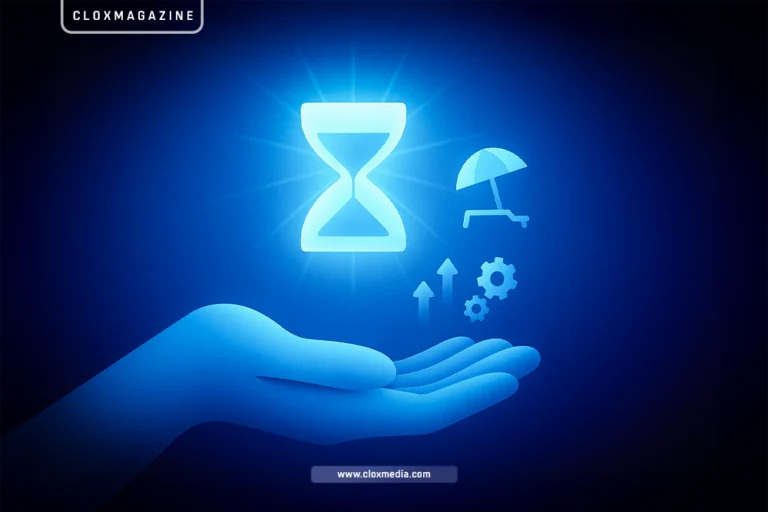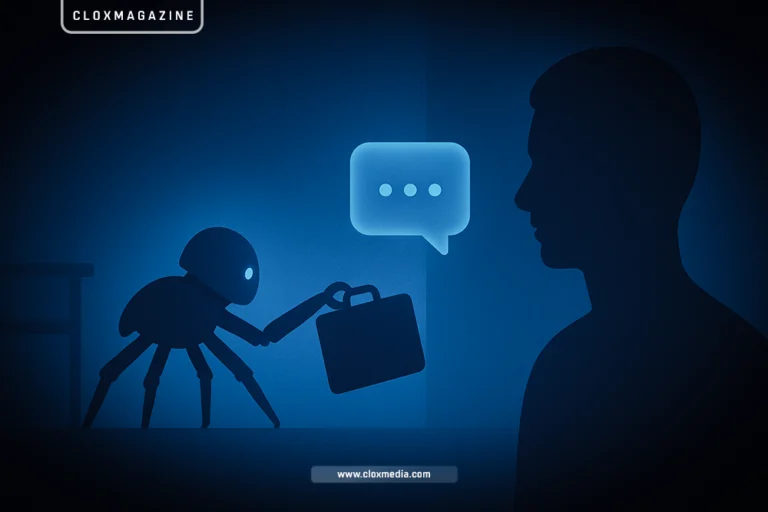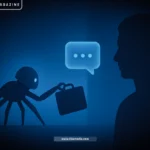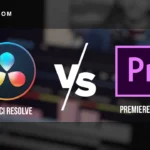John McAfee speaking at Def Con 2014, where he issued bold warnings about smartphone surveillance and cyber warfare. Eight years ago, cybersecurity pioneer John McAfee sounded an alarm that reverberates even louder today. In a candid interview (and public talks) at the time, he revealed unsettling truths about our digital world – from smartphones acting as spies in our pockets to the lurking threats of nation-state cyber weapons. Many dismissed his warnings as the ramblings of an eccentric tech guru. Yet as each year passes, McAfee’s revelations have proven increasingly prophetic. This article revisits McAfee’s key warnings from 2015–2017, examines their scientific and technological basis, and analyzes their relevance in today’s context with a humanized tone of urgency and credibility.

Smartphones: The Ultimate Surveillance Tool
McAfee did not mince words about our beloved smartphones – he called them the ultimate surveillance devices. In his 2014 Def Con appearance, he warned that modern smartphones “are spying on American consumers, who don’t bother to read user agreements”. Apps routinely ask for microphone, camera, and location access, and most users blindly consent, effectively carrying a 24/7 tracking device.
McAfee’s advice was radical: he said the “most promising privacy thing is stupid phones”, announcing “I’m dumping all my smartphones” in favor of basic flip phones. At the time, this sounded extreme. But today we know he wasn’t being paranoid… he was spot on.

Recent revelations about invasive app permissions, always-listening voice assistants, and even spyware like Pegasus (used by governments to remotely hack phones) confirm that our phones can indeed watch, listen, and record us without our knowledge. McAfee even claimed that organized cybercriminal groups exploit smartphones: for instance, he noted that Russian and Chinese “mafias” pay popular websites to secretly install phone keyloggers, aiming to steal data like passwords or Bitcoin keys. Whether or not every claim was fully accurate, the core truth remains: our smartphones richly document our lives, and in the wrong hands, that data is power. Eight years on, McAfee’s urgent plea to take smartphone security and privacy seriously is more relevant than ever.
All Ads on this website are served by GOOGLE
Traditional Antivirus Is Failing – We Need Proactive Security
As the founder of one of the first antivirus companies, McAfee had unique authority to critique the industry he helped create. By 2015, he was openly declaring that “Antivirus is dead”. He pointed out that traditional antivirus software relies on outdated paradigms: it waits for malware to be discovered and catalogued before it can protect users. “It’s based on ancient tech that is no longer relevant,” McAfee said, noting that malware toolkits appear far faster than antivirus updates can keep up. In his interview, he admitted he no longer used his own product and instead practiced proactive security – using segregated devices and even changing phones every couple of weeks.
At the time, many in the industry were shocked at such a blunt eulogy for antivirus software. But McAfee was highlighting a shift that was already underway: the rise of zero-day exploits and advanced persistent threats that signature-based AV couldn’t catch. Since then, we’ve seen an explosion of new threats (ransomware, polymorphic viruses, fileless malware) that indeed render old-school antivirus insufficient. The cybersecurity community has largely validated McAfee’s view by moving toward proactive and adaptive defenses – things like behavior-based detection, endpoint protection platforms, threat hunting teams, and AI-driven security monitoring.
McAfee’s warning that we have “zero cybersecurity” unless we reinvent our approach was dire, and it injected urgency into an industry that had grown complacent. Today, no security-conscious professional would rely solely on traditional antivirus – a clear sign that McAfee’s foresight has become reality.
Nation-State Cyber Weapons and the Invisible Cyber War
One of McAfee’s most dramatic warnings was that we are in a cyber war and barely realize it. Eight years ago, he argued that nation-states were actively engaged in cyber-attacks, but governments (and the public) were “not educated on cyber warfare” and thus dangerously unaware. In his interview, McAfee bluntly stated, “The Chinese have declared war on us, they just haven’t spoken it out loud”
. He cited the massive hacks of U.S. government personnel records (now known to be the OPM breach) as an act of information warfare, noting China had “sucked up 14 million records of every [US] government employee… No greater coup of warfare has ever been achieved”. At the time, such statements sounded alarmist to some. But subsequent events have vindicated McAfee’s sense of an ongoing cyber war. We’ve since witnessed Russian state hackers taking down parts of Ukraine’s power grid, North Korean hackers unleashing the WannaCry ransomware globally using leaked NSA cyber weapons, and a steady drumbeat of espionage hacks targeting everything from email systems to nuclear research facilities. McAfee’s point about outdated leadership was also prescient – governments have indeed struggled to keep pace, often led by officials who barely understand technology. In 2015, McAfee quipped that if a politician has “never sent an e-mail” they shouldn’t be in charge of cyber policy. He was ahead of his time in highlighting the strategic importance of cyber defense. The consequences of ignoring these warnings are now plain: nation-state cyber weapons can spiral out of control, as happened with the Shadow Brokers leak of NSA tools, and an unprepared society will “lose the cyber war without even seeing it”, as McAfee cautioned. His message from eight years ago – that cyber warfare is real, here, and now – carries even more weight today amid escalating global cyber tensions.
All Ads on this website are served by GOOGLE
The Dangers of Cloud Storage and Centralized Data
Long before “zero trust” became a buzzword, McAfee was extremely wary of cloud computing and centralized data hoards. In his interview, he questioned the sanity of entrusting sensitive information to the cloud. “What is the cloud?… I don’t know what computer it’s on or even what country it’s in. I don’t know who is managing it… yet I’m willing to put my valuable data there. No! Why would we do that?” he exclaimed. McAfee emphasized that handing your data to a third-party platform is effectively “giving them your secrets”, with no guarantee of security. Back in 2015–2016, cloud services were exploding in popularity, and many dismissed McAfee’s skepticism as techno-paranoia or an inability to adapt to new trends. But his words ring eerily true today.

Major breaches have occurred due to misconfigured cloud databases, leaking billions of records because someone left a server publicly accessible. In fact, over 6 billion records were exposed in 2019 alone simply due to databases and backups accidentally left open online… a direct consequence of the “centralized data” model McAfee cautioned against. Beyond breaches, McAfee’s concern also touched on control: he feared that governments or tech corporations could too easily demand or manipulate centrally stored data, eroding privacy and freedom. In the years since, we’ve seen incidents of cloud providers handing data to authorities and vast data-mining operations by tech giants. Ignoring McAfee’s warning about the cloud’s inherent risks has led to a world where much of our personal and corporate data lives on servers we neither see nor control. His solution at the time was to push for decentralized tools (indeed, he was developing a device called “Decentral” to enable local mesh networks).
While cloud computing isn’t going away, McAfee’s insights underscore the importance of strong encryption, zero-trust architectures, and carefully vetting who holds our data. The more centralized our information, the bigger the target on its back – a point he made with characteristically blunt foresight.
Conceptual illustration of cybersecurity threats to smartphones and digital data. McAfee warned that everything from our phones to our cloud storage could be compromised.
Cryptocurrency Wallets and Financial Data at Risk
John McAfee was an early advocate of cryptocurrency, but with that enthusiasm came stark warnings about digital asset security. Eight years ago – well before the recent boom in crypto hacks – McAfee cautioned that cryptocurrency wallets on smartphones were vulnerable to theft. He described a scenario where hackers slip keylogging malware into your phone (for example, via a malicious app or website) and lie in wait. If you have a Bitcoin wallet app, the malware will silently capture your login keys and “the next day your wallet is going to be empty,” McAfee warned.
The same goes for mobile banking: “the first time you log into your bank… the next day your bank balance will disappear”, he said. Such statements in 2015–2017 were met with some skepticism… was mobile malware really that powerful? Would hackers really target individuals’ wallets? Fast forward to today, and we see exactly these threats playing out. There have been numerous reports of Android malware targeting banking and crypto apps, grabbing credentials and draining accounts.
Crypto exchanges and individual wallets have been hacked, resulting in billions in losses. McAfee’s point that hackers are patient is also borne out: sophisticated cybercriminals often infect devices by the thousands but wait for an opportune moment (sometimes even using coordinated “big heists”) rather than stealing from a few people immediately. What makes this even more dangerous is the lack of recourse – in crypto, transactions are irreversible, so victims rarely recover stolen funds. McAfee implored users to take responsibility for securing their financial data, noting that neither phones nor cloud services were safe places for valuable information.
Today, anyone serious about cryptocurrency uses hardware wallets or other off-line key storage, essentially echoing McAfee’s advice to keep critical secrets off potentially compromised devices. Unfortunately, many casual users still keep crypto apps on their everyday phones, just as many reuse simple passwords for banking – exactly the risky behaviors McAfee flagged. The lesson is clear: ignore these warnings and you may learn about cybersecurity the hard way, by becoming a victim of a sudden digital heist.
Hackers: Both Guardians and Adversaries in Cyberspace
McAfee had a nuanced view of hackers… he respected the ethical ones and feared the criminals. In his interview, he highlighted the role of white-hat hackers (the good guys) in defending against threats. He noted that if cybercriminals were sloppy and stole from a few hundred people, “the next day the white hat hackers are going to say, ‘Ah! This is how they did it,’… [and] you can protect yourself”. In other words, ethical hackers constantly analyze breaches and create fixes, acting as an immune system for the cyber ecosystem. McAfee himself even hired famous hackers to work with him – for example, he made his friend (who once hacked the United Airlines in-flight system) the CTO of his company. He recognized that to outsmart malicious hackers, you often need brilliant minds who think like them. On the flip side, McAfee was acutely aware of the damage criminal hackers could do, especially when backed by powerful organizations or nation-states. He frequently spoke of the “Russian cyber mafia” and state-sponsored hackers not to be xenophobic, but to jolt people into realizing that highly skilled adversaries are trying to penetrate systems every day.
The past eight years have only underscored this reality: we’ve seen the rise of ransomware gangs (some with implicit state sanction), dark web markets for zero-day exploits, and hacker-for-hire services. Yet, we’ve also seen the rise of the ethical hacker community; companies now run bug bounty programs inviting hackers to report vulnerabilities, and many former “black hats” have turned their skills to improve security. McAfee’s portrayal of hackers as both heroes and villains was accurate. The key takeaway from his warning is that we must engage and support the ethical hacker community if we hope to stay ahead of the bad actors. Demonizing all hackers is counterproductive; instead, as McAfee did, we should embrace the curious and talented ones to help defend us. In an age when one teenager in a basement can launch a global cyber-attack, having savvy hackers on our side is not just nice-to-have – it’s essential for survival in cyberspace.
All Ads on this website are served by GOOGLE
Conclusion: No More Ignoring the Warnings
John McAfee’s revelations from eight years ago were delivered with his trademark intensity and colorful flair, but they were grounded in technical reality and foresight. He warned that if we ignored these issues – from ubiquitous surveillance to outdated security models – the consequences would be dire. In the years since, we’ve watched many of his predictions come true. The privacy erosions he decried are now plain fact as smartphones and smart devices intrude into every corner of life. The cyber weapons and attacks he forecast have manifested in everything from hospital ransomware crises to election system breaches. The cloud vulnerabilities he feared have led to massive data exposures. And the financial cyber-heists he outlined have victimized individuals and corporations alike, sometimes to the tune of hundreds of millions of dollars.
The urgency in McAfee’s tone back then, which perhaps seemed over-the-top, now feels entirely appropriate. We can no longer afford to shrug off these warnings. The cost of complacency is measured in breached records, empty bank accounts, blacked-out cities, and shattered trust. Yet there is a silver lining: McAfee’s warnings also came with solutions – use simpler devices when possible, be proactive about security, decentralize, educate our leaders, and embrace the ethical hacker community. It took far too many real-world disasters for the broader public to catch up to his advice, but change is happening. Cybersecurity is finally being discussed alongside national security and personal safety, as it should be. The genie of digital technology is out of the bottle, and we must heed the insights of experts like McAfee to navigate this new reality safely. His voice, though now silenced, echoes as a reminder that the time to act was yesterday – but if not yesterday, let it be today. We ignore these revelations at our peril, and the hour is late. The next breach or cyber-assault is not a question of “if” but “when,” and as McAfee urged, we must be prepared and not wait until it’s too late.
Follow CLOXLABS for more independent research and analyses like this. We strive to keep these critical discussions alive despite working with a limited budget – your support and engagement make a difference.
CLOXMAGAZINE, founded by CLOXMEDIA in the UK in 2022, is dedicated to empowering tech developers through comprehensive coverage of technology and AI. It delivers authoritative news, industry analysis, and practical insights on emerging tools, trends, and breakthroughs, keeping its readers at the forefront of innovation.

All Ads on this website are served by GOOGLE


